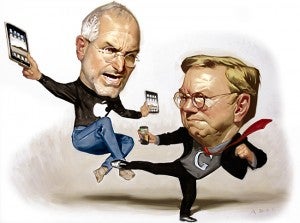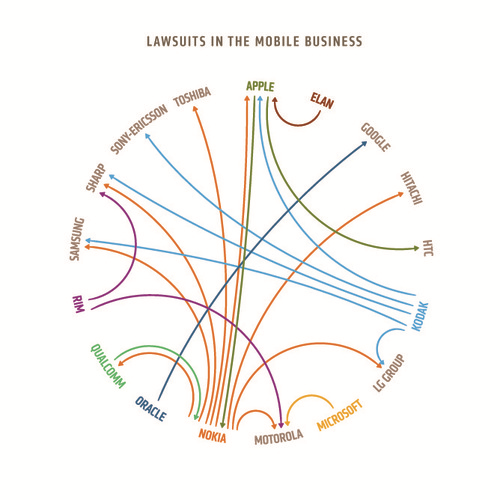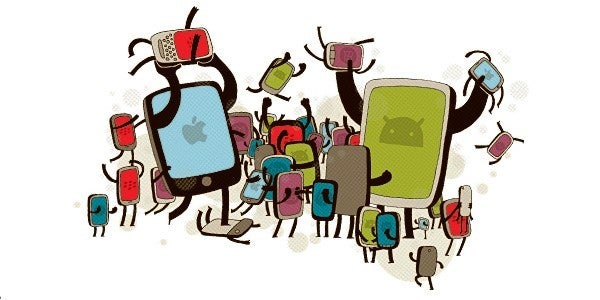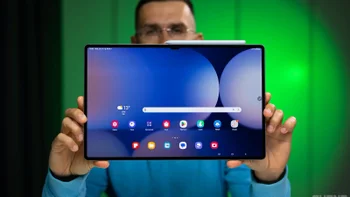Why the Patent Cold War needs to end

We've all seen the news over and over that this company is suing another, or this company has bought the patent profile of another. The trouble is that we rarely get into the specifics of what is happening, why its happening, and how the system works. Unfortunately, the answers to those questions are rarely compelling, satisfying or even rational. Today, Google finally sounded off a bit more clearly on how it feels about the current system, and honestly we hope Google's vision is what comes to pass.

The warning shots
Of course, the Nortel patent purchase isn't the first of its kind, and likely won't be the last. We have continuously seen big companies amassing patent weaponry to scare others in what is essentially a Patent Cold War. As far back as 2008, we saw Nokia and Kodak enter into a deal that would allow each to use the other's patent portfolio. We've seen HTC and Samsung purchase patent protection from Intellectual Ventures (and we'll have more on IV later on.) We've seen HTC in the process of purchasing the patent portfolio of S3Graphics for protection against Apple. We've even heard that HTC pays Microsoft for each Android handset in order to avoid similar lawsuits from the Redmond giant. And, plenty of other patent portfolio purchases. The general rule for all of these purchases is that they are for protection rather than for filing lawsuits, but of course lawsuits are always still filed.

Now, we don't want to participate in name calling, but many consider companies like Intellectual Ventures to be "patent trolls". IV would insist that it is in the business of helping small companies and inventors to get paid for their inventions. Others would say that IV is simply taking advantage of a system that is flat out broken.
A broken system
We aren't going to weigh in on whether or not IV is working the system in an acceptable way or not. We're not even going to comment on whether or not Apple, Microsoft, RIM and others are trying to compete through litigation rather than innovation. Those aren't the real issues here. It's not a matter of whether it's right or wrong for these companies to be acting the way they are. It's a matter of whether the system should allow or even foster this behavior in the first place.
One thing that many people don't seem to understand about patent law cases is that who comes out with a product or idea has absolutely no bearing on these cases. People can go back and forth constantly saying that Apple stole an idea from Google or Microsoft, or Microsoft stole from HTC, or Samsung stole from Apple, but those arguments are nothing but white noise. All that matters is what patents you hold or own, and the patent office is ultimately to blame for how the system works.

These days, patents can be granted for broad ideas, even multiple patents for what amount to the same idea, which is why acquiring patent portfolios can be so useful. You acquire patent portfolios to either gain patents that could be used in a counter-attack, which would make a settlement easier, or you could acquire patents that cover the same ideas, making the lawsuit invalid. For example, one of the patent claims that Apple currently has against HTC is for a "system and method for performing an action on a structure in computer-generated data". This is a fancy way to say the patent covers a system that allows you to click on a phone number and be given the option to call that number. To be clear, the patent doesn't cover the actual code used, the patent claims that Apple owns the idea that you can call a number on a touchscreen device by clicking it. Does that sound like a rational patent or does that sound like an idea that hundreds of people likely had at the same time?
Conclusion
We know that there are rational patents out there, but when companies like Intellectual Ventures can make a lot of money (and they make a lot of money) litigating these issues, that indicates a problem in the system. There are patents that make sense, like that of Oracle against Google. But there are also many unnecessary lawsuits that do nothing but add costs for companies (costs which are passed on to we the consumers), and keep companies from innovating because of resources taken up by lawsuits, and the fear that someone out there may already hold a patent for the idea that phones should be able to call phone numbers.
Follow us on Google News










Things that are NOT allowed:
To help keep our community safe and free from spam, we apply temporary limits to newly created accounts: